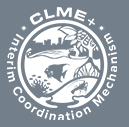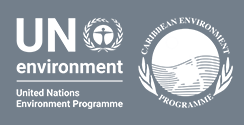|
Insular Caribbean
|
Central & North America |
South America |
Insular Caribbean |
Central & North America |
South America |
Displaying 41-50 of 98 results
 indicates that the Project Profile has been verified and it’s being managed by the project’s profile manager.
indicates that the Project Profile has been verified and it’s being managed by the project’s profile manager. -
Implementation of the Strategic Action Programme to Ensure Integrated and Sustainable Management of the Transboundary Water Resources of the Amazon River Basin Considering Climate Variability and Change
Implementación del Programa de Acción Estratégica para Asegurar la Gestión Integrada y Sostenible de los Recursos Hídricos Transfronterizos de la Cuenca del Río Amazonas considerando la Variabilidad y el Cambio ClimáticoBrief Description:The project is aimed to implement the Strategic Action Program (SAP), promoting Integrated Water Resources Management (IWRM) and source-to-sea approaches, to improve ecological, social and economic benefits and, enabling the countries to meet their relevant SDG and convention targets in the Amazon basin. It will work on developing innovative, bottom-up water governance leading to improved ecosystem status and livelihoods, institutionally strengthened for improved basinwide management, strengthened Amazon communities able to adapt to extreme hydrologic events and sea level rise, strengthening livelihoods and reducing ecosystem pressures. Better understanding of the transboundary environmental impacts of major infrastructure projects on the Basin and increased resilience in support of SDG9 needed for long-term sustainability of IWRM, delivering socio-economic and environmental benefits from the delivery of effective SAP implementation at national and regional level.El proyecto tiene como objetivo implementar el Programa de Acción Estratégica (SAP), promoviendo la Gestión Integrada de los Recursos Hídricos (GIRH) y los enfoques desde la fuente al mar, para mejorar los beneficios ecológicos, sociales y económicos y, permitir que los países cumplan con sus ODS y convenciones relevantes. objetivos en la cuenca del Amazonas. Trabajará en el desarrollo de una gobernanza del agua innovadora y de abajo hacia arriba que conduzca a un mejor estado del ecosistema y medios de vida, fortalecido institucionalmente para una mejor gestión de toda la cuenca, comunidades amazónicas fortalecidas capaces de adaptarse a eventos hidrológicos extremos y al aumento del nivel del mar, fortaleciendo los medios de vida y reduciendo las presiones del ecosistema. Una mejor comprensión de los impactos ambientales transfronterizos de los principales proyectos de infraestructura en la Cuenca y una mayor resiliencia en apoyo del ODS 9 necesaria para la sostenibilidad a largo plazo de la GIRH, brindando beneficios socioeconómicos y ambientales a partir de la implementación efectiva de SAP a nivel nacional y regional.Lead Organization: UNEP-CEPDonor: GEFProject ID: 9770Geographic Scope: Multicountry (global)Project Status: OngoingLast Update: 06/01/2021
Start Date: 2019-12-11
End Date: 2021-01-01Project Profile Manager: Isabelle Van der Beck
Contact Email: Isabelle.vanderbeck@unep.org
Contact Phone:Partners: Amazon Cooperation Treaty Organization (ACTO), Ministry of Foreign Affairs, Directorate General of Boundaries and Borders (Bolivia); National Water Agency, ANA (Brazil); Ministry of Environment and Sustainable Development (Colombia); Secretariat of Water, SENAGUA (Ecuador); Ministry of Public Works and Communication (Guyana);National Water Authority, ANA (Peru); Ministry of Foreign Affairs (Suriname); Ministry of People's Power for Eco-socialism and Water (Venezuela)Grant (USD): $11,735,780.00Total co-financing (USD): $108,501,713.00(Co) financing not originating from GEF:Participating Country(s):Brazil
Colombia
Guyana
Suriname
Venezuela
Bolivia
Ecuador
Peru
Contributions to the 10-year CLME+ Strategic Action Programme (2015-2025)
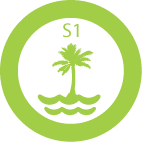


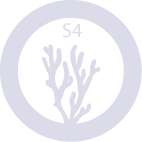
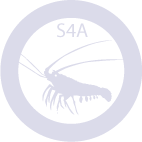

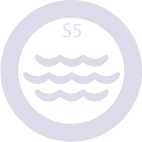
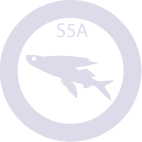
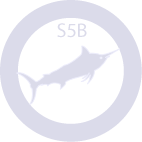
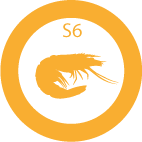 Please click on the colored SAP Strategy icon to obtain more information on the specific SAP Actions this initiative is contributing to1. Enhance the regional governance arrangements for the protection of the marine environment
Please click on the colored SAP Strategy icon to obtain more information on the specific SAP Actions this initiative is contributing to1. Enhance the regional governance arrangements for the protection of the marine environment
1.8. Establish and/or increase the capacity of (sub-)regional organizations and countries for integrating the management of terrestrial drainage basins with the management of the marine recipient basins and coastal development(CLME and NBSLME)2. Enhance the regional governance arrangements for sustainable fisheries
3. Establish and operationalise a regional policy coordination mechanismfor ocean governance, with initial focus on shared Living Marine Resources
3.4. Develop and adopt a regional policy for data and information harmonization and sharing3.6. Develop and coordinate integrated and sectoral sustainable financing strategies for the cost-effective implementation of broader ocean governance in the region, with a short and medium term focus on sLMR governance3.7. Facilitate the preparation of data and information products and the uptake of monitoring and research outputs by (sub)regional and national science-policy interfaces4. Enhance the governance arrangements for ecosystem-based management for reefs and associated ecosystems
4A. Enhance the governance arrangementsfor implementing an ecosystem approach for spiny lobster fisheries
4B. Enhance the governance arrangementsfor implementing an ecosystem approach for queen conch fisheries
5. Enhance the governance arrangements for implementing an ecosystem approach for pelagic fisheries
5A. Enhance the governance arrangements for implementing the ecosystem approach for flyingfish fisheries
5B. Enhance the governance arrangementsfor implementing an ecosystem approach for large pelagics fisheries
6. Implement EBM/EAF of the Guianas-Brazil continental shelf with special reference to the shrimp and groundfish fishery
6.3. Explore and establish a sub-regional arrangement to address the issue of coastal habitat degradation and destruction within the context of the expanded framework for the protection of the marine environment built under Strategy 16.7. Establish and/orthe capacity of sub-regional and national arrangements for implementing management and conservation measures
Contributions to the 2030 UN Sustainable Development Agenda (SDG’s)
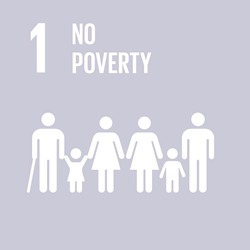
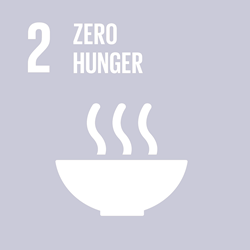
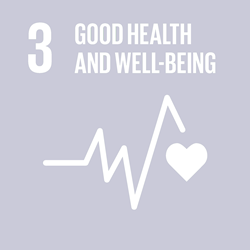
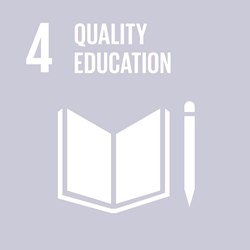
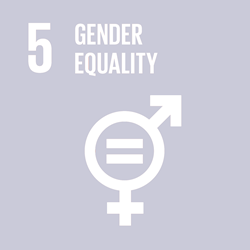
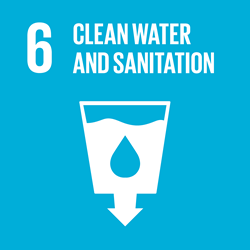
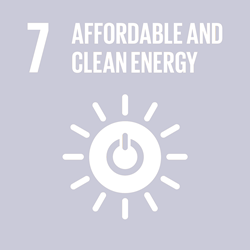
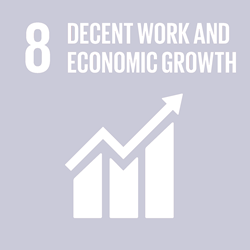
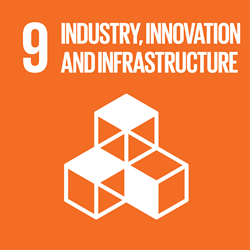
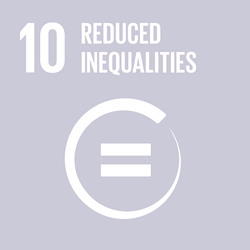
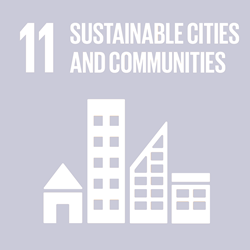
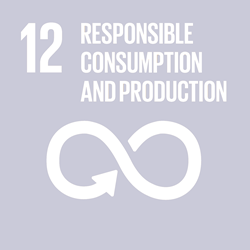
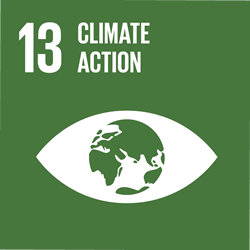
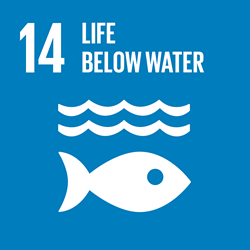
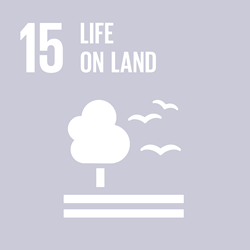
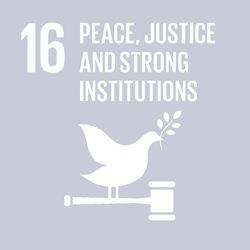
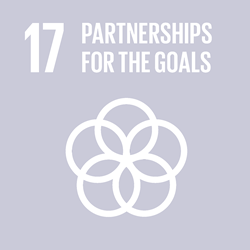
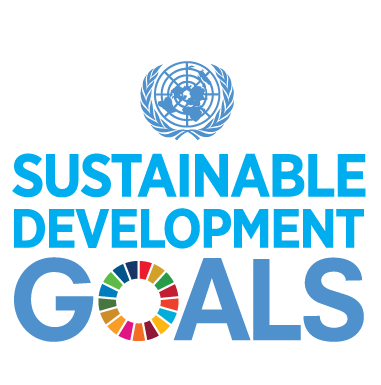 Please click on the SDG14 colored icon to see to which specific SDG14 targets this initiative is contributing.1. End poverty in all its forms everywhere
Please click on the SDG14 colored icon to see to which specific SDG14 targets this initiative is contributing.1. End poverty in all its forms everywhere
2 End hunger, achieve food security and improved nutrition and promote sustainable agriculture
3 Ensure healthy lives and promote well-being for all at all ages
4 Ensure inclusive and equitable quality education and promote lifelong learning opportunities for all
5 Achieve gender equality and empower all women and girls
6 Ensure availability and sustainable management of water and sanitation for all
6.1 By 2030, achieve universal and equitable access to safe and affordable drinking water for all7 Ensure access to affordable, reliable, sustainable and modern energy for all
8 Promote sustained, inclusive and sustainable economic growth, full and productive employment and decent work for all
9 Build resilient infrastructure, promote inclusive and sustainable industrialization and foster innovation
9.1 Develop quality, reliable, sustainable and resilient infrastructure, including regional and transborder infrastructure, to support economic development and human well-being, with a focus on affordable and equitable access for all10 Reduce inequality within and among countries
11 Make cities and human settlements inclusive, safe, resilient and sustainable
12 Ensure sustainable consumption and production patterns
13 Take urgent action to combat climate change and its impacts
13.1 Strengthen resilience and adaptive capacity to climate-related hazards and natural disasters in all countries14 Conserve and sustainably use the oceans, seas and marine resources for sustainable development
14.2 By 2020, sustainably manage and protect marine and coastal ecosystems to avoid significant adverse impacts, including by strengthening their resilience, and take action for their restoration in order to achieve healthy and productive oceans14.7 By 2030, increase the economic benefits to Small Island developing States and least developed countries from the sustainable use of marine resources, including through sustainable management of fisheries, aquaculture and tourism15 Protect, restore and promote sustainable use of terrestrial ecosystems, sustainably manage forests, combat desertification, and halt and reverse land degradation and halt biodiversity loss
16 Promote peaceful and inclusive societies for sustainable development, provide access to justice for all and build effective, accountable and inclusive institutions at all levels
Other Regional and Global Commitments
Regional Emerging Issues
Mainstreaming biodiversity conservation in the tourism sector of the protected areas and strategic ecosystems of San Andres, Old Providence and Santa Catalina islands
Transversalizando la conservación de la biodiversidad del sector turístico en las áreas protegidas y ecosistemas estratégicos de las islas San Andrés, Old Providence y Santa CatalinaBrief Description:To promote biodiversity conservation mainstreaming in the tourism sector of the Protected Areas and strategic ecosystems of San Andres, Old Providence and Santa Catalina islands through the design and implementation of participatory governance models, effective policies and biodiversity friendly tourism products, with four components. Component 1 focus on Planning and Institutional Framework for a biodiversity focused tourism sector, component 2 on the management of tourism impacts, component 3 will work on biodiversity mainstreaming in innovative coastal and marine local tourism development in the MPA, while component 4 focused on monitoring and evaluation, awareness raising and knowledge management.Promover la transversalización de la conservación de la biodiversidad en el sector turístico de las MPAs y ecosistemas estratégicos de las islas San Andrés, Old Providence y Santa Catalina a través del diseño e implementación de modelos de gobernanza participativa, políticas efectivas y productos turísticos amigables con la biodiversidad, con cuatro componentes. El componente 1 se centra en la planificación y el marco institucional para un sector turístico centrado en la diversidad biológica, el componente 2 en la gestión de los impactos del turismo, el componente 3 trabajará en la integración de la diversidad biológica en el desarrollo innovador del turismo local costero y marino en el AMP, mientras que el componente 4 se centrará en el seguimiento y la evaluación , sensibilización y gestión del conocimiento.Lead Organization: CORALINADonor: GEFProject ID: 10578Geographic Scope: NationalProject Status: OngoingLast Update: 06/01/2021
Start Date: 2020-01-07
End Date: 2023-01-12Website:Project Profile Manager: Arne Briton
Contact Email: direccion@coralina.gov.co
Contact Phone:Partners: CI ColombiaGrant (USD): $2,652,294.00Total co-financing (USD): $0.00(Co) financing not originating from GEF:Participating Country(s):Colombia
Contributions to the 10-year CLME+ Strategic Action Programme (2015-2025)









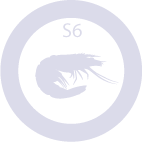 Please click on the colored SAP Strategy icon to obtain more information on the specific SAP Actions this initiative is contributing to1. Enhance the regional governance arrangements for the protection of the marine environment
Please click on the colored SAP Strategy icon to obtain more information on the specific SAP Actions this initiative is contributing to1. Enhance the regional governance arrangements for the protection of the marine environment
1.4. Enhance the compliance and enforcement capacity of the regional, sub-regional and national governance arrangements1.7. Establish and/or enhance the capacity within and among arrangements to undertake and mainstream valuation of ecosystem goods and services in regional, sub-regional and national decision-making and policy development1.10. Establish and/or enhance the data and information quality and collection and management capacity of the regional, sub-regional and nationalgovernance arrangements for the protection of the marine environment, including through the establishment of public-private partnerships2. Enhance the regional governance arrangements for sustainable fisheries
3. Establish and operationalise a regional policy coordination mechanismfor ocean governance, with initial focus on shared Living Marine Resources
4. Enhance the governance arrangements for ecosystem-based management for reefs and associated ecosystems
4A. Enhance the governance arrangementsfor implementing an ecosystem approach for spiny lobster fisheries
4B. Enhance the governance arrangementsfor implementing an ecosystem approach for queen conch fisheries
5. Enhance the governance arrangements for implementing an ecosystem approach for pelagic fisheries
5A. Enhance the governance arrangements for implementing the ecosystem approach for flyingfish fisheries
5B. Enhance the governance arrangementsfor implementing an ecosystem approach for large pelagics fisheries
6. Implement EBM/EAF of the Guianas-Brazil continental shelf with special reference to the shrimp and groundfish fishery
Contributions to the 2030 UN Sustainable Development Agenda (SDG’s)





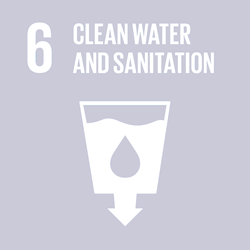


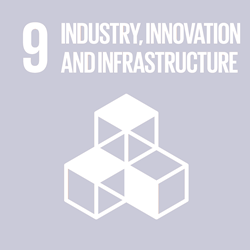



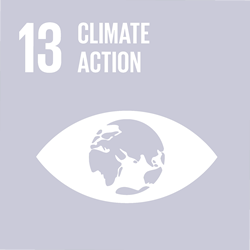




 Please click on the SDG14 colored icon to see to which specific SDG14 targets this initiative is contributing.1. End poverty in all its forms everywhere
Please click on the SDG14 colored icon to see to which specific SDG14 targets this initiative is contributing.1. End poverty in all its forms everywhere
2 End hunger, achieve food security and improved nutrition and promote sustainable agriculture
3 Ensure healthy lives and promote well-being for all at all ages
4 Ensure inclusive and equitable quality education and promote lifelong learning opportunities for all
5 Achieve gender equality and empower all women and girls
6 Ensure availability and sustainable management of water and sanitation for all
7 Ensure access to affordable, reliable, sustainable and modern energy for all
8 Promote sustained, inclusive and sustainable economic growth, full and productive employment and decent work for all
9 Build resilient infrastructure, promote inclusive and sustainable industrialization and foster innovation
10 Reduce inequality within and among countries
11 Make cities and human settlements inclusive, safe, resilient and sustainable
12 Ensure sustainable consumption and production patterns
13 Take urgent action to combat climate change and its impacts
14 Conserve and sustainably use the oceans, seas and marine resources for sustainable development
14.7 By 2030, increase the economic benefits to Small Island developing States and least developed countries from the sustainable use of marine resources, including through sustainable management of fisheries, aquaculture and tourism15 Protect, restore and promote sustainable use of terrestrial ecosystems, sustainably manage forests, combat desertification, and halt and reverse land degradation and halt biodiversity loss
16 Promote peaceful and inclusive societies for sustainable development, provide access to justice for all and build effective, accountable and inclusive institutions at all levels
Other Regional and Global Commitments
Regional Emerging Issues
C-CHANGE Managing Adaptation to Environmental Change in Coastal Communities: Canada and the Caribbean
Gestión de la adaptación al cambio ambiental en las comunidades costeras: Canadá y el CaribeBrief Description:The project develops local community capacity designed to close the gaps between ongoing and anticipated environmental change, and the urgent need for coastal communities to foster and maintain their physical, economic, cultural, and social well-being. C-Change seeks to enhance community resilience through improved planning for adaptation. This may require mobilizing new knowledge and the development of new policy and management measures consistent with established local context and strategic planning. The focus is on immediate and downstream consequences to coastal communities of the insidious effects of sea level rise and the potential catastrophic impacts of extreme weather events. C-Change acknowledges that capacity for planning adaptation and emergency preparedness must be integrated within the local context of the community using available scientific, management, and institutional governance arrangements. This project links community members and university researchers from Canada and the Caribbean region in support of applied research on coastal adaptation to environmental change from the impacts of storms and sea-level rise on susceptible coastal communities.El proyecto desarrolla las capacidades de comunidades para cerrar las brechas entre el cambio ambiental actual y anticipado, y la necesidad urgente para que las comunidades costeras fomenten y mantengan su bienestar físico, económico, cultural y social. C-Change busca mejorar la resiliencia de la comunidad a través de una mejor planificación para la adaptación. Esto puede requerir la movilización de nuevos conocimientos y el desarrollo de nuevas políticas y medidas de gestión coherentes con el contexto local establecido y la planificación estratégica. La atención se centra en las consecuencias inmediatas y aguas abajo para las comunidades costeras de los efectos insidiosos del aumento del nivel del mar y los posibles impactos catastróficos de los fenómenos meteorológicos extremos. C-Change reconoce que la capacidad para planificar la adaptación y la preparación para emergencias debe integrarse dentro del contexto local de la comunidad utilizando los arreglos científicos, administrativos y de gobernanza institucional disponibles. Este proyecto vincula a miembros de la comunidad e investigadores universitarios de Canadá y la región del Caribe en apoyo de la investigación aplicada sobre la adaptación costera al cambio ambiental de los impactos de las tormentas y el aumento del nivel del mar en las comunidades costeras susceptibles.Lead Organization: UWI, Trinidad and Tobago Sir Arthur Lewis Institute of Social and Economic StudiesDonor: IDRC / SALISES (Social Sciences and Humanities Research Council of Canada)Project ID: 104518-013Geographic Scope: Multicountry (global)Project Status: CompletedLast Update: 06/01/2021
Start Date: 2011
End Date: 2015Project Profile Manager: Patrick Watson
Contact Email: Patrick.watson@sta.uwi.edu
Contact Phone:Partners: Telfer School of Management of the University of Ottawa, OECS, World Resources InstituteGrant (USD): $725,453.00Total co-financing (USD): $0.00(Co) financing not originating from GEF:Participating Country(s):Belize
Guyana
Trinidad and Tobago
Saint Vincent and the Grenadines
Canada
Contributions to the 10-year CLME+ Strategic Action Programme (2015-2025)

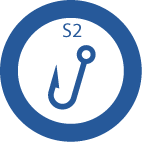

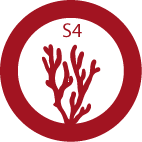





 Please click on the colored SAP Strategy icon to obtain more information on the specific SAP Actions this initiative is contributing to1. Enhance the regional governance arrangements for the protection of the marine environment
Please click on the colored SAP Strategy icon to obtain more information on the specific SAP Actions this initiative is contributing to1. Enhance the regional governance arrangements for the protection of the marine environment
1.4. Enhance the compliance and enforcement capacity of the regional, sub-regional and national governance arrangements2. Enhance the regional governance arrangements for sustainable fisheries
2.14. Establish and/or enhance the capacity of the regional, sub-regional and national fisheries governance arrangements for the monitoring, assessment & reporting on the state of fisheries3. Establish and operationalise a regional policy coordination mechanismfor ocean governance, with initial focus on shared Living Marine Resources
3.5. Develop and coordinate integrated and sectoral research strategies in support of the implementation of broader ocean governance in the region, with a short and medium term focus on sLMR management4. Enhance the governance arrangements for ecosystem-based management for reefs and associated ecosystems
4.8. Operationalise and strengthen interlinked Decision Support Systems (DSSs) for the protection of reefs and associated ecosystems and for the sustainable management of associated living marine resources4A. Enhance the governance arrangementsfor implementing an ecosystem approach for spiny lobster fisheries
4B. Enhance the governance arrangementsfor implementing an ecosystem approach for queen conch fisheries
5. Enhance the governance arrangements for implementing an ecosystem approach for pelagic fisheries
5A. Enhance the governance arrangements for implementing the ecosystem approach for flyingfish fisheries
5B. Enhance the governance arrangementsfor implementing an ecosystem approach for large pelagics fisheries
6. Implement EBM/EAF of the Guianas-Brazil continental shelf with special reference to the shrimp and groundfish fishery
Contributions to the 2030 UN Sustainable Development Agenda (SDG’s)

















 Please click on the SDG14 colored icon to see to which specific SDG14 targets this initiative is contributing.1. End poverty in all its forms everywhere
Please click on the SDG14 colored icon to see to which specific SDG14 targets this initiative is contributing.1. End poverty in all its forms everywhere
2 End hunger, achieve food security and improved nutrition and promote sustainable agriculture
3 Ensure healthy lives and promote well-being for all at all ages
4 Ensure inclusive and equitable quality education and promote lifelong learning opportunities for all
5 Achieve gender equality and empower all women and girls
6 Ensure availability and sustainable management of water and sanitation for all
7 Ensure access to affordable, reliable, sustainable and modern energy for all
8 Promote sustained, inclusive and sustainable economic growth, full and productive employment and decent work for all
9 Build resilient infrastructure, promote inclusive and sustainable industrialization and foster innovation
10 Reduce inequality within and among countries
11 Make cities and human settlements inclusive, safe, resilient and sustainable
12 Ensure sustainable consumption and production patterns
13 Take urgent action to combat climate change and its impacts
14 Conserve and sustainably use the oceans, seas and marine resources for sustainable development
14.7 By 2030, increase the economic benefits to Small Island developing States and least developed countries from the sustainable use of marine resources, including through sustainable management of fisheries, aquaculture and tourism15 Protect, restore and promote sustainable use of terrestrial ecosystems, sustainably manage forests, combat desertification, and halt and reverse land degradation and halt biodiversity loss
16 Promote peaceful and inclusive societies for sustainable development, provide access to justice for all and build effective, accountable and inclusive institutions at all levels
Other Regional and Global Commitments
Regional Emerging Issues
FORCE Future of reef in a changing environment: An ecosystem approach to manage Caribbean coral reefs in the face of climate change
El futuro de los arrecifes en un entorno cambiante: un enfoque ecosistémico para gestionar los arrecifes de coral del Caribe frente al cambio climáticoBrief Description:The overall aim is to provide coral reef managers with a toolbox of sustainable management practices that minimise the loss of coral reef health and biodiversity. An ecosystem approach is taken that explicitly links the health of the ecosystem with the livelihoods of dependent communities, and identifies the governance structures needed to implement sustainable development. Project outcomes are reached in four steps. First, a series of experimental, observational and modelling studies are carried out to understand both the ultimate and proximate drivers of reef health and therefore identify the chief causes of reef degradation. Second, the project assembles a toolbox of management measures and extends their scope where new research can significantly improve their efficacy. Tools were developed to assist with a diverse range of issues ranging from incorporating climate change impacts into the design of marine reserve networks, identifying separate fish stocks just from morphometric measurements and providing livelihoods diversification frameworks to regional organisations.El objetivo general es brindar a los gestores de los arrecifes de coral una caja de herramientas de prácticas de gestión sostenible que minimicen la pérdida de la salud y la biodiversidad de los arrecifes de coral. Se adopta un enfoque ecosistemico que vincula explícitamente la salud del ecosistema con los medios de vida de las comunidades dependientes e identifica las estructuras de gobernanza necesarias para implementar el desarrollo sostenible. Los resultados del proyecto se alcanzan en cuatro pasos. En primer lugar, se llevan a cabo una serie de estudios experimentales, observaciones y modelaje para comprender los factores impulsores de la salud de los arrecifes y, por lo tanto, identificar las causas principales de su degradación. En segundo lugar, el proyecto compila una caja de herramientas de medidas de gestión y amplía su alcance donde las nuevas investigaciones pueden mejorar significativamente su eficacia. Se desarrollaron herramientas para ayudar con una amplia gama de cuestiones que van desde la incorporación de los impactos del cambio climático en el diseño de redes de reservas marinas, la identificación de poblaciones de peces separadas solo a partir de mediciones morfométricas y la provisión de marcos de diversificación de los medios de vida a las organizaciones regionales.Lead Organization: University ExeterDonor: EU commissionProject ID: 244161Geographic Scope: Multicountry (regional)Project Status: CompletedLast Update: 05/01/2021
Start Date: 2010-01-01
End Date: 2014-01-05Project Profile Manager: Peter Mumby
Contact Email: p.j.mumby@exeter.ac.uk
Contact Phone:Partners:Grant (USD): $11,413,005.00Total co-financing (USD): $0.00(Co) financing not originating from GEF:Participating Country(s):Belize
Costa Rica
Honduras
Panama
Barbados
Dominican Republic
Jamaica
Saint Lucia
Anguilla
Cayman Islands
Bonaire
Turks and Caicos Islands
Antigua and Barbuda
Saint Kitts and Nevis
Curaçao
Saint Vincent and the Grenadines
Contributions to the 10-year CLME+ Strategic Action Programme (2015-2025)









 Please click on the colored SAP Strategy icon to obtain more information on the specific SAP Actions this initiative is contributing to1. Enhance the regional governance arrangements for the protection of the marine environment
Please click on the colored SAP Strategy icon to obtain more information on the specific SAP Actions this initiative is contributing to1. Enhance the regional governance arrangements for the protection of the marine environment
1.6. Enhance the capacity within and among arrangements to undertake and mainstream lessons learned and findings from monitoring,science and research in regional, sub-regional and national decision-making1.10. Establish and/or enhance the data and information quality and collection and management capacity of the regional, sub-regional and nationalgovernance arrangements for the protection of the marine environment, including through the establishment of public-private partnerships2. Enhance the regional governance arrangements for sustainable fisheries
3. Establish and operationalise a regional policy coordination mechanismfor ocean governance, with initial focus on shared Living Marine Resources
3.7. Facilitate the preparation of data and information products and the uptake of monitoring and research outputs by (sub)regional and national science-policy interfaces4. Enhance the governance arrangements for ecosystem-based management for reefs and associated ecosystems
4.6. Establish and/or enhance the institutional structure and capacity of (sub-)regional and national arrangements for implementing management and conservation measures for reef ecosystems4A. Enhance the governance arrangementsfor implementing an ecosystem approach for spiny lobster fisheries
4B. Enhance the governance arrangementsfor implementing an ecosystem approach for queen conch fisheries
5. Enhance the governance arrangements for implementing an ecosystem approach for pelagic fisheries
5A. Enhance the governance arrangements for implementing the ecosystem approach for flyingfish fisheries
5B. Enhance the governance arrangementsfor implementing an ecosystem approach for large pelagics fisheries
6. Implement EBM/EAF of the Guianas-Brazil continental shelf with special reference to the shrimp and groundfish fishery
Contributions to the 2030 UN Sustainable Development Agenda (SDG’s)

















 Please click on the SDG14 colored icon to see to which specific SDG14 targets this initiative is contributing.1. End poverty in all its forms everywhere
Please click on the SDG14 colored icon to see to which specific SDG14 targets this initiative is contributing.1. End poverty in all its forms everywhere
2 End hunger, achieve food security and improved nutrition and promote sustainable agriculture
3 Ensure healthy lives and promote well-being for all at all ages
4 Ensure inclusive and equitable quality education and promote lifelong learning opportunities for all
5 Achieve gender equality and empower all women and girls
6 Ensure availability and sustainable management of water and sanitation for all
7 Ensure access to affordable, reliable, sustainable and modern energy for all
8 Promote sustained, inclusive and sustainable economic growth, full and productive employment and decent work for all
9 Build resilient infrastructure, promote inclusive and sustainable industrialization and foster innovation
10 Reduce inequality within and among countries
11 Make cities and human settlements inclusive, safe, resilient and sustainable
12 Ensure sustainable consumption and production patterns
13 Take urgent action to combat climate change and its impacts
14 Conserve and sustainably use the oceans, seas and marine resources for sustainable development
14.2 By 2020, sustainably manage and protect marine and coastal ecosystems to avoid significant adverse impacts, including by strengthening their resilience, and take action for their restoration in order to achieve healthy and productive oceans15 Protect, restore and promote sustainable use of terrestrial ecosystems, sustainably manage forests, combat desertification, and halt and reverse land degradation and halt biodiversity loss
16 Promote peaceful and inclusive societies for sustainable development, provide access to justice for all and build effective, accountable and inclusive institutions at all levels
Other Regional and Global Commitments
Regional Emerging Issues
CBC II Strengthening of the Caribbean Biological Corridor, Phase II
Fortalecimiento del Corredor Biológico del Caribe, Fase IIBrief Description:The project seeks to build a strong and sustained collective, institutionalised regional approach to the conservation, management and governance of terrestrial and marine biodiversity in the Caribbean Islands hotspot, focusing initially on Cuba, Haiti and the Dominican Republic, with a progressive and well-structured expansion to other countries and territories.El proyecto busca construir un enfoque regional institucionalizado, colectivo fuerte y sostenido para la conservación, gestión y gobernanza de la biodiversidad terrestre y marina en el hotspot de las Islas del Caribe, centrándose inicialmente en Cuba, Haití y la República Dominicana, con un enfoque progresivo y bien estructurado. Expansión a otros países y territorios.Lead Organization: UNEP - Law Division/ Office for Latin America and the CaribbeanDonor: EUProject ID:Geographic Scope: Multicountry (regional)Project Status: OngoingLast Update: 05/01/2021
Start Date: 2017-06-01
End Date: 2021-12-01Website:https://www.unenvironment.org/news-and-stories/story/caribbean-biological-corridor-work-progressProject Profile Manager: Isabel Martinez
Contact Email: Isabel.Martinez@unep.org
Contact Phone:Partners: European UnionGrant (USD): $3,480,000.00Total co-financing (USD): $0.00(Co) financing not originating from GEF:Participating Country(s):Cuba
Dominican Republic
Haiti
Contributions to the 10-year CLME+ Strategic Action Programme (2015-2025)









 Please click on the colored SAP Strategy icon to obtain more information on the specific SAP Actions this initiative is contributing to1. Enhance the regional governance arrangements for the protection of the marine environment
Please click on the colored SAP Strategy icon to obtain more information on the specific SAP Actions this initiative is contributing to1. Enhance the regional governance arrangements for the protection of the marine environment
1.5. Establish and/or enhance the capacity of the regional,sub-regional and national governance arrangements for the involvement of civil society in the implementation of the EBM/EAF approach (IGOs,NGOs,CBOs,private sector...)1.7. Establish and/or enhance the capacity within and among arrangements to undertake and mainstream valuation of ecosystem goods and services in regional, sub-regional and national decision-making and policy development1.8. Establish and/or increase the capacity of (sub-)regional organizations and countries for integrating the management of terrestrial drainage basins with the management of the marine recipient basins and coastal development(CLME and NBSLME)2. Enhance the regional governance arrangements for sustainable fisheries
3. Establish and operationalise a regional policy coordination mechanismfor ocean governance, with initial focus on shared Living Marine Resources
4. Enhance the governance arrangements for ecosystem-based management for reefs and associated ecosystems
4A. Enhance the governance arrangementsfor implementing an ecosystem approach for spiny lobster fisheries
4B. Enhance the governance arrangementsfor implementing an ecosystem approach for queen conch fisheries
5. Enhance the governance arrangements for implementing an ecosystem approach for pelagic fisheries
5A. Enhance the governance arrangements for implementing the ecosystem approach for flyingfish fisheries
5B. Enhance the governance arrangementsfor implementing an ecosystem approach for large pelagics fisheries
6. Implement EBM/EAF of the Guianas-Brazil continental shelf with special reference to the shrimp and groundfish fishery
Contributions to the 2030 UN Sustainable Development Agenda (SDG’s)














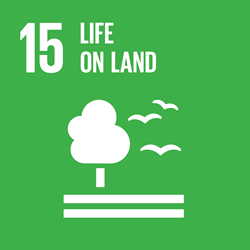


 Please click on the SDG14 colored icon to see to which specific SDG14 targets this initiative is contributing.1. End poverty in all its forms everywhere
Please click on the SDG14 colored icon to see to which specific SDG14 targets this initiative is contributing.1. End poverty in all its forms everywhere
2 End hunger, achieve food security and improved nutrition and promote sustainable agriculture
3 Ensure healthy lives and promote well-being for all at all ages
4 Ensure inclusive and equitable quality education and promote lifelong learning opportunities for all
5 Achieve gender equality and empower all women and girls
6 Ensure availability and sustainable management of water and sanitation for all
7 Ensure access to affordable, reliable, sustainable and modern energy for all
8 Promote sustained, inclusive and sustainable economic growth, full and productive employment and decent work for all
9 Build resilient infrastructure, promote inclusive and sustainable industrialization and foster innovation
10 Reduce inequality within and among countries
11 Make cities and human settlements inclusive, safe, resilient and sustainable
12 Ensure sustainable consumption and production patterns
13 Take urgent action to combat climate change and its impacts
14 Conserve and sustainably use the oceans, seas and marine resources for sustainable development
14.a Increase scientific knowledge, develop research capacity and transfer marine technology, taking into account the Intergovernmental Oceanographic Commission Criteria and Guidelines on the Transfer of Marine Technology, in order to improve ocean health and to enhance the contribution of marine biodiversity to the development of developing countries, in particular small island developing States and least developed countries15 Protect, restore and promote sustainable use of terrestrial ecosystems, sustainably manage forests, combat desertification, and halt and reverse land degradation and halt biodiversity loss
15.1 By 2020, ensure the conservation, restoration and sustainable use of terrestrial and inland freshwater ecosystems and their services, in particular forests, wetlands, mountains and drylands, in line with obligations under international agreements16 Promote peaceful and inclusive societies for sustainable development, provide access to justice for all and build effective, accountable and inclusive institutions at all levels
Other Regional and Global Commitments
Regional Emerging Issues
Biopama II Biodiversity And Protected Area Management Programme, Phase II
Programa de gestión de biodiversidad y áreas protegidas, Fase IIBrief Description:The objective of the second phase of this project is to further enhance existing local institutions and networks by building their capacity to strengthen policy and to implement well informed decisions on biodiversity conservation and protected areas management, and access and benefit sharing. A new component of this Programme is the funding of projects led by local communities, NGOs and other key actors, enabling them to enhance livelihoods through the sustainable use of resources in protected areas.The contribution of the IUCN is focusing on capacity building while the JRC provides the technical and scientific assistance to set up regional observatories for the 3 regions, observatories that are supported by the DOPA.El objetivo de la segunda fase de este proyecto es mejorar aún más las instituciones y redes locales existentes mediante el desarrollo de su capacidad para fortalecer las políticas e implementar decisiones bien informadas sobre la conservación de la biodiversidad y la gestión de áreas protegidas, y el acceso y distribución de beneficios. Un nuevo componente es la financiación de proyectos dirigidos por comunidades locales, ONG y otros actores clave, lo que les permite mejorar los medios de vida mediante el uso sostenible de recursos en áreas protegidas. La contribución de la UICN se centra en el desarrollo de capacidades mientras que el CCI proporciona la asistencia técnica y científica para la instalación de observatorios regionales para las 3 regiones, observatorios que son apoyados por la DOPA.Lead Organization: IUCN-ORMACDonor: European Development FundProject ID:Geographic Scope: Multicountry (regional)Project Status: OngoingLast Update: 05/01/2021
Start Date: 2017-06-01
End Date: 2023-07-01Project Profile Manager: Hyacinth Armstrong-Vaughn
Contact Email: hyacinth.armstrongvaughn@iucn.org
Contact Phone:Partners: Joint Research Centre, CERMES, ACPGrant (USD): $22,608,000.00Total co-financing (USD): $0.00(Co) financing not originating from GEF:Participating Country(s):Belize
Costa Rica
Guatemala
Honduras
Panama
Nicaragua
Bahamas
Barbados
Cuba
Haiti
Jamaica
Saint Lucia
Trinidad and Tobago
Antigua and Barbuda
Saint Kitts and Nevis
Saint Vincent and the Grenadines
El Salvador
Contributions to the 10-year CLME+ Strategic Action Programme (2015-2025)









 Please click on the colored SAP Strategy icon to obtain more information on the specific SAP Actions this initiative is contributing to1. Enhance the regional governance arrangements for the protection of the marine environment
Please click on the colored SAP Strategy icon to obtain more information on the specific SAP Actions this initiative is contributing to1. Enhance the regional governance arrangements for the protection of the marine environment
1.4. Enhance the compliance and enforcement capacity of the regional, sub-regional and national governance arrangements1.5. Establish and/or enhance the capacity of the regional,sub-regional and national governance arrangements for the involvement of civil society in the implementation of the EBM/EAF approach (IGOs,NGOs,CBOs,private sector...)1.6. Enhance the capacity within and among arrangements to undertake and mainstream lessons learned and findings from monitoring,science and research in regional, sub-regional and national decision-making1.10. Establish and/or enhance the data and information quality and collection and management capacity of the regional, sub-regional and nationalgovernance arrangements for the protection of the marine environment, including through the establishment of public-private partnerships2. Enhance the regional governance arrangements for sustainable fisheries
2.13. Establish and/or enhance the data and information quality and collection and management capacity of the regional, sub-regional and national fisheries governance arrangements, including through the establishment of public-private partnerships3. Establish and operationalise a regional policy coordination mechanismfor ocean governance, with initial focus on shared Living Marine Resources
3.7. Facilitate the preparation of data and information products and the uptake of monitoring and research outputs by (sub)regional and national science-policy interfaces4. Enhance the governance arrangements for ecosystem-based management for reefs and associated ecosystems
4.4. Coordinate and enhance (sub-)regional and national efforts for the conservation of the biodiversity of reef and associated habitats, including through the strengthening of networks of marine protected areas (MPAs), and initiatives for sustainable reef fisheries* such as programmes dealing with alien invasive species4.8. Operationalise and strengthen interlinked Decision Support Systems (DSSs) for the protection of reefs and associated ecosystems and for the sustainable management of associated living marine resources4A. Enhance the governance arrangementsfor implementing an ecosystem approach for spiny lobster fisheries
4B. Enhance the governance arrangementsfor implementing an ecosystem approach for queen conch fisheries
5. Enhance the governance arrangements for implementing an ecosystem approach for pelagic fisheries
5A. Enhance the governance arrangements for implementing the ecosystem approach for flyingfish fisheries
5B. Enhance the governance arrangementsfor implementing an ecosystem approach for large pelagics fisheries
6. Implement EBM/EAF of the Guianas-Brazil continental shelf with special reference to the shrimp and groundfish fishery
Contributions to the 2030 UN Sustainable Development Agenda (SDG’s)

















 Please click on the SDG14 colored icon to see to which specific SDG14 targets this initiative is contributing.1. End poverty in all its forms everywhere
Please click on the SDG14 colored icon to see to which specific SDG14 targets this initiative is contributing.1. End poverty in all its forms everywhere
2 End hunger, achieve food security and improved nutrition and promote sustainable agriculture
3 Ensure healthy lives and promote well-being for all at all ages
4 Ensure inclusive and equitable quality education and promote lifelong learning opportunities for all
5 Achieve gender equality and empower all women and girls
6 Ensure availability and sustainable management of water and sanitation for all
7 Ensure access to affordable, reliable, sustainable and modern energy for all
8 Promote sustained, inclusive and sustainable economic growth, full and productive employment and decent work for all
9 Build resilient infrastructure, promote inclusive and sustainable industrialization and foster innovation
10 Reduce inequality within and among countries
11 Make cities and human settlements inclusive, safe, resilient and sustainable
12 Ensure sustainable consumption and production patterns
13 Take urgent action to combat climate change and its impacts
14 Conserve and sustainably use the oceans, seas and marine resources for sustainable development
14.2 By 2020, sustainably manage and protect marine and coastal ecosystems to avoid significant adverse impacts, including by strengthening their resilience, and take action for their restoration in order to achieve healthy and productive oceans14.5 By 2020, conserve at least 10 per cent of coastal and marine areas, consistent with national and international law and based on the best available scientific information15 Protect, restore and promote sustainable use of terrestrial ecosystems, sustainably manage forests, combat desertification, and halt and reverse land degradation and halt biodiversity loss
16 Promote peaceful and inclusive societies for sustainable development, provide access to justice for all and build effective, accountable and inclusive institutions at all levels
Other Regional and Global Commitments
Regional Emerging Issues
Biopama I Biodiversity And Protected Area Management Programme, Phase I
Programa de gestión de biodiversidad y áreas protegidas, Fase IBrief Description:BIOPAMA aims at reinforcing the management and governance of protected and conserved areas in all the 79 ACP countries. By providing unique and tailored support to protected area authorities at the local, national and regional level, it supports them in achieving their conservation objectives and to report more accurately their progress on relevant multilateral environmental agreements. Regional Observatories for protected areas coordinate information systems, data collection, analysis, monitoring and reporting and develop the capacities of staff and organisations to make optimal use of this information to address specific needs. Capacity building activities support protected area management and governance, and enable conservation practitioners, national agencies and protected areas managers to improve decision-making and prioritization of resource allocation. Site-based targeted actions support local and regional activities and their partners on biodiversity conservation to improve the knowledge base for decision making and address key priorities. The Caribbean Gateway acts as an open data for regional networking and sustainable development as it is linking data to better decision-making.BIOPAMA tiene como objetivo reforzar la gestión y la gobernanza de las áreas protegidas en los 79 países ACP. Al brindar un apoyo único y personalizado a las autoridades de áreas protegidas a nivel local, nacional y regional, las apoya para lograr sus objetivos de conservación y provee infomación para el avance en acuerdos ambientales multilaterales relevantes. Los Observatorios Regionales de áreas protegidas coordinan los sistemas de información, la recopilación de datos, el análisis, el monitoreo y la presentación de informes y desarrollan las capacidades del personal y las organizaciones para hacer un uso óptimo de esta información para atender necesidades específicas. Las actividades de creación de capacidad apoyan la gestión y la gobernanza de las áreas protegidas y permiten a los profesionales de la conservación, las agencias nacionales y los administradores de áreas protegidas mejorar la toma de decisiones y la priorización de la asignación de recursos. Las acciones específicas basadas en el sitio apoyan las actividades locales y regionales y sus socios en la conservación de la biodiversidad para mejorar la base de conocimientos para la toma de decisiones y abordar las prioridades clave. Caribbean Gateway actúa como un dato abierto para la creación de redes regionales y el desarrollo sostenible, ya que vincula los datos para mejorar la toma de decisiones.Lead Organization: IUCN-ORMACDonor: European Development FundProject ID:Geographic Scope: Multicountry (global)Project Status: CompletedLast Update: 04/01/2021
Start Date: 2011-05-01
End Date: 2017-04-01Project Profile Manager: Hyacinth Armstrong-Vaughn
Contact Email: hyacinth.armstrongvaughn@iucn.org
Contact Phone:Partners: Joint Research Centre, CERMES, ACPGrant (USD): $8,000,000.00Total co-financing (USD): $0.00(Co) financing not originating from GEF:Participating Country(s):Belize
Costa Rica
Guatemala
Honduras
Panama
Nicaragua
Bahamas
Barbados
Cuba
Haiti
Jamaica
Saint Lucia
Trinidad and Tobago
Antigua and Barbuda
Saint Kitts and Nevis
Saint Vincent and the Grenadines
El Salvador
Contributions to the 10-year CLME+ Strategic Action Programme (2015-2025)









 Please click on the colored SAP Strategy icon to obtain more information on the specific SAP Actions this initiative is contributing to1. Enhance the regional governance arrangements for the protection of the marine environment
Please click on the colored SAP Strategy icon to obtain more information on the specific SAP Actions this initiative is contributing to1. Enhance the regional governance arrangements for the protection of the marine environment
1.4. Enhance the compliance and enforcement capacity of the regional, sub-regional and national governance arrangements1.6. Enhance the capacity within and among arrangements to undertake and mainstream lessons learned and findings from monitoring,science and research in regional, sub-regional and national decision-making1.10. Establish and/or enhance the data and information quality and collection and management capacity of the regional, sub-regional and nationalgovernance arrangements for the protection of the marine environment, including through the establishment of public-private partnerships2. Enhance the regional governance arrangements for sustainable fisheries
2.13. Establish and/or enhance the data and information quality and collection and management capacity of the regional, sub-regional and national fisheries governance arrangements, including through the establishment of public-private partnerships3. Establish and operationalise a regional policy coordination mechanismfor ocean governance, with initial focus on shared Living Marine Resources
3.7. Facilitate the preparation of data and information products and the uptake of monitoring and research outputs by (sub)regional and national science-policy interfaces4. Enhance the governance arrangements for ecosystem-based management for reefs and associated ecosystems
4.4. Coordinate and enhance (sub-)regional and national efforts for the conservation of the biodiversity of reef and associated habitats, including through the strengthening of networks of marine protected areas (MPAs), and initiatives for sustainable reef fisheries* such as programmes dealing with alien invasive species4.8. Operationalise and strengthen interlinked Decision Support Systems (DSSs) for the protection of reefs and associated ecosystems and for the sustainable management of associated living marine resources4A. Enhance the governance arrangementsfor implementing an ecosystem approach for spiny lobster fisheries
4B. Enhance the governance arrangementsfor implementing an ecosystem approach for queen conch fisheries
5. Enhance the governance arrangements for implementing an ecosystem approach for pelagic fisheries
5A. Enhance the governance arrangements for implementing the ecosystem approach for flyingfish fisheries
5B. Enhance the governance arrangementsfor implementing an ecosystem approach for large pelagics fisheries
6. Implement EBM/EAF of the Guianas-Brazil continental shelf with special reference to the shrimp and groundfish fishery
Contributions to the 2030 UN Sustainable Development Agenda (SDG’s)

















 Please click on the SDG14 colored icon to see to which specific SDG14 targets this initiative is contributing.1. End poverty in all its forms everywhere
Please click on the SDG14 colored icon to see to which specific SDG14 targets this initiative is contributing.1. End poverty in all its forms everywhere
2 End hunger, achieve food security and improved nutrition and promote sustainable agriculture
3 Ensure healthy lives and promote well-being for all at all ages
4 Ensure inclusive and equitable quality education and promote lifelong learning opportunities for all
5 Achieve gender equality and empower all women and girls
6 Ensure availability and sustainable management of water and sanitation for all
7 Ensure access to affordable, reliable, sustainable and modern energy for all
8 Promote sustained, inclusive and sustainable economic growth, full and productive employment and decent work for all
9 Build resilient infrastructure, promote inclusive and sustainable industrialization and foster innovation
10 Reduce inequality within and among countries
11 Make cities and human settlements inclusive, safe, resilient and sustainable
12 Ensure sustainable consumption and production patterns
13 Take urgent action to combat climate change and its impacts
14 Conserve and sustainably use the oceans, seas and marine resources for sustainable development
14.2 By 2020, sustainably manage and protect marine and coastal ecosystems to avoid significant adverse impacts, including by strengthening their resilience, and take action for their restoration in order to achieve healthy and productive oceans14.5 By 2020, conserve at least 10 per cent of coastal and marine areas, consistent with national and international law and based on the best available scientific information15 Protect, restore and promote sustainable use of terrestrial ecosystems, sustainably manage forests, combat desertification, and halt and reverse land degradation and halt biodiversity loss
16 Promote peaceful and inclusive societies for sustainable development, provide access to justice for all and build effective, accountable and inclusive institutions at all levels
Other Regional and Global Commitments
Regional Emerging Issues
Evidence-based and policy coherent Oceans Economy and Trade Strategies
Estrategias comerciales y económicas de los océanos coherentes con las políticas y basadas en pruebas científicasBrief Description:The project aims at supporting coastal developing countries, and particularly SIDS, in realizing economic benefits from the sustainable use of marine resources and understanding the legal and institutional frameworks underpinning such potential. It will further assist coastal developing countries and key stakeholders in promoting the sustainable trade of products and services in ocean-based economic sectors by analyzing, elaborating and adopting evidence-based and policy-coherent Oceans Economy and Trade Strategies (OETS) and enhancing national implementing capacities. The project will have three main phases: assessment/formulation, validation/implementation; and dissemination. The project will have a set of research, dialogue and capacity building country owned activities.El proyecto tiene como objetivo ayudar a los países en desarrollo costeros, y en particular a los PEID, a obtener beneficios económicos del uso sostenible de los recursos marinos y comprender los marcos legales e institucionales que sustentan ese potencial. También ayudará a los países costeros en desarrollo y a las partes interesadas clave a promover el comercio sostenible de productos y servicios en los sectores económicos oceánicos mediante el análisis, la elaboración y la adopción de Estrategias de Economía y Comercio Oceánicas (OETS) basadas en pruebas y coherentes con las políticas y mejorando la implementación nacional. capacidades. El proyecto tendrá tres fases principales: evaluación / formulación, validación / implementación; y difusión. El proyecto tendrá un conjunto de actividades de investigación, diálogo y desarrollo de capacidades propias del país.Lead Organization: UNCTADDonor: UNCTADProject ID: 1819KGeographic Scope: Multicountry (regional)Project Status: OngoingLast Update: 04/01/2021
Start Date: 2018
End Date: 2021Website:https://unctad.org/project/evidence-based-and-policy-coherent-oceans-economy-and-trade-strategiesProject Profile Manager: David Vivas Eugui
Contact Email: David.Vivaseugui@unctad.org
Contact Phone:Partners: UN Oceans Affairs and the Law of the Sea (DOALOS)Grant (USD): $650,000.00Total co-financing (USD): $0.00(Co) financing not originating from GEF:Participating Country(s):Belize
Costa Rica
Barbados
Contributions to the 10-year CLME+ Strategic Action Programme (2015-2025)









 Please click on the colored SAP Strategy icon to obtain more information on the specific SAP Actions this initiative is contributing to1. Enhance the regional governance arrangements for the protection of the marine environment
Please click on the colored SAP Strategy icon to obtain more information on the specific SAP Actions this initiative is contributing to1. Enhance the regional governance arrangements for the protection of the marine environment
1.5. Establish and/or enhance the capacity of the regional,sub-regional and national governance arrangements for the involvement of civil society in the implementation of the EBM/EAF approach (IGOs,NGOs,CBOs,private sector...)1.7. Establish and/or enhance the capacity within and among arrangements to undertake and mainstream valuation of ecosystem goods and services in regional, sub-regional and national decision-making and policy development2. Enhance the regional governance arrangements for sustainable fisheries
2.7. Coordinate the development and implementation of regional, sub-regional and national initiatives for sustainable small scale fisheries (including capacity building and pilot initiatives)2.12. Strengthen the capacity of the regional and sub-regional arrangements to support countries in becoming parties to relevant international and regional agreements and complying with their global and regional commitments towards the sustainable use and conservation of the marine environment and associated living resources (including the support to update and harmonize national legislation and regulations)3. Establish and operationalise a regional policy coordination mechanismfor ocean governance, with initial focus on shared Living Marine Resources
3.6. Develop and coordinate integrated and sectoral sustainable financing strategies for the cost-effective implementation of broader ocean governance in the region, with a short and medium term focus on sLMR governance4. Enhance the governance arrangements for ecosystem-based management for reefs and associated ecosystems
4.5. Develop and implement initiatives for sustainable livelihoods by building capacity for diversification, fostering and facilitating viable alternative sources of Decent Work and/or improved incomes, and creating addedvalue (e.g. through marketing and sales)4A. Enhance the governance arrangementsfor implementing an ecosystem approach for spiny lobster fisheries
4B. Enhance the governance arrangementsfor implementing an ecosystem approach for queen conch fisheries
5. Enhance the governance arrangements for implementing an ecosystem approach for pelagic fisheries
5A. Enhance the governance arrangements for implementing the ecosystem approach for flyingfish fisheries
5B. Enhance the governance arrangementsfor implementing an ecosystem approach for large pelagics fisheries
6. Implement EBM/EAF of the Guianas-Brazil continental shelf with special reference to the shrimp and groundfish fishery
Contributions to the 2030 UN Sustainable Development Agenda (SDG’s)

















 Please click on the SDG14 colored icon to see to which specific SDG14 targets this initiative is contributing.1. End poverty in all its forms everywhere
Please click on the SDG14 colored icon to see to which specific SDG14 targets this initiative is contributing.1. End poverty in all its forms everywhere
2 End hunger, achieve food security and improved nutrition and promote sustainable agriculture
3 Ensure healthy lives and promote well-being for all at all ages
4 Ensure inclusive and equitable quality education and promote lifelong learning opportunities for all
5 Achieve gender equality and empower all women and girls
6 Ensure availability and sustainable management of water and sanitation for all
7 Ensure access to affordable, reliable, sustainable and modern energy for all
8 Promote sustained, inclusive and sustainable economic growth, full and productive employment and decent work for all
9 Build resilient infrastructure, promote inclusive and sustainable industrialization and foster innovation
10 Reduce inequality within and among countries
11 Make cities and human settlements inclusive, safe, resilient and sustainable
12 Ensure sustainable consumption and production patterns
13 Take urgent action to combat climate change and its impacts
14 Conserve and sustainably use the oceans, seas and marine resources for sustainable development
14.7 By 2030, increase the economic benefits to Small Island developing States and least developed countries from the sustainable use of marine resources, including through sustainable management of fisheries, aquaculture and tourism14.b Provide access for small-scale artisanal fishers to marine resources and markets14.c Enhance the conservation and sustainable use of oceans and their resources by implementing international law as reflected in UNCLOS, which provides the legal framework for the conservation and sustainable use of oceans and their resources, as recalled in paragraph 158 of The Future We Want15 Protect, restore and promote sustainable use of terrestrial ecosystems, sustainably manage forests, combat desertification, and halt and reverse land degradation and halt biodiversity loss
16 Promote peaceful and inclusive societies for sustainable development, provide access to justice for all and build effective, accountable and inclusive institutions at all levels
Other Regional and Global Commitments
Regional Emerging Issues
MRV Hub Caribbean Cooperative Measurement Reporting and Verification Hub
Brief Description:MRV is an important foundation for policy-making within the framework of the Paris Agreement. The project is establishing a “Caribbean Cooperative MRV Hub (CCMRVH)” to create greenhouse gas inventories, assess climate mitigation measures and track progress towards national climate targets. The platform will bring together experts from different countries and create regional institutional prerequisites for the cross-national use of expert knowledge on MRV. National specialists are developing institutional structures, emission-relevant data structures and drafts for political strategies and international reporting. Specialist MRV knowledge is also being improved through training and the project is developing framework conditions for the dissemination and sustainable use of the “Hub”.MRV es una base importante para la formulación de políticas en el marco del Acuerdo de París. El proyecto establecera “Centro de MRV Cooperativo del Caribe (CCMRVH)” para crear inventarios de gases de efecto invernadero, evaluar las medidas de mitigación del clima y seguir el avance hacia los objetivos climáticos nacionales. La plataforma reunirá a expertos de diferentes países y creará prerrequisitos institucionales regionales para el uso transnacional del conocimiento. Los especialistas nacionales están desarrollando estructuras institucionales, estructuras de datos relevantes para las emisiones y borradores para estrategias políticas e informes internacionales. El conocimiento especializado en MRV también se está mejorando a través de la capacitación y el proyecto está desarrollando condiciones marco para la difusión y uso sostenible del “Hub”.Lead Organization: Greenhouse Gas Management InstituteDonor: International Climate Initiative of the German Federal Ministry for the Environment, Nature Conservation and Nuclear Safety (BMW)Project ID:Geographic Scope: Multicountry (regional)Project Status: OngoingLast Update: 29/12/2020
Start Date: 2018-08-01
End Date: 2023-07-01Website:https://ghginstitute.org/ccmrvh/Project Profile Manager: Wiley Barbour
Contact Email: wiley.barbour@ghginstitute.org
Contact Phone:Partners: Climate Change Division, Ministry of Economic Growth and Job Creation – Jamaica, Department of Environment, Ministry of Health and the Environment - Antigua and Barbuda, Department of Sustainable Development, Ministry of Education, Innovation, Gender Relations and Sustainable Development - Saint Lucia, Energy Division, Ministry of Finance and Energy – Grenada, Environmental Coordinating Unit, Ministry of Health and Environment – Dominica, Ministry of Agriculture, Marine Resources, and Cooperatives - Saint Kitts and Nevis, Ministry of Economic Planning, Sustainable Development, Industry, Information and Labour - Saint Vincent and the Grenadines, Ministry of Environment and Drainage – Barbados, Ministry of Planning and Development - Trinidad and Tobago, National Climate Change Office, Ministry of Agriculture, Forestry, Fisheries, the Environment, Sustainable Development and Immigration – Belize, Office of Climate Change, Ministry of the Presidency – Guyana, The Bahamas Environment, Science and Technology (BEST) - BahamasGrant (USD): $3,489,818.00Total co-financing (USD): $0.00(Co) financing not originating from GEF:Participating Country(s):Belize
Guyana
Bahamas
Barbados
Dominica
Grenada
Jamaica
Saint Lucia
Trinidad and Tobago
Antigua and Barbuda
Saint Kitts and Nevis
Saint Vincent and the Grenadines
Contributions to the 10-year CLME+ Strategic Action Programme (2015-2025)









 Please click on the colored SAP Strategy icon to obtain more information on the specific SAP Actions this initiative is contributing to1. Enhance the regional governance arrangements for the protection of the marine environment
Please click on the colored SAP Strategy icon to obtain more information on the specific SAP Actions this initiative is contributing to1. Enhance the regional governance arrangements for the protection of the marine environment
1.2. Establish and strengthen regional institutional coordination and cooperation arrangements1.9. Strengthen the capacity of the regional and sub-regional arrangements to support countries in becoming parties to relevant international and regional agreements and complying with their global and regional commitments towards the conservation of the marine environment (including the support to update and harmonize national legislation and regulations)1.10. Establish and/or enhance the data and information quality and collection and management capacity of the regional, sub-regional and nationalgovernance arrangements for the protection of the marine environment, including through the establishment of public-private partnerships2. Enhance the regional governance arrangements for sustainable fisheries
2.9. Coordinate the development and implementation of regional, sub-regional and national initiatives to enhance safety and reduce risk factors (including at sea) for fishers, with particular focus on risk management3. Establish and operationalise a regional policy coordination mechanismfor ocean governance, with initial focus on shared Living Marine Resources
3.4. Develop and adopt a regional policy for data and information harmonization and sharing3.7. Facilitate the preparation of data and information products and the uptake of monitoring and research outputs by (sub)regional and national science-policy interfaces4. Enhance the governance arrangements for ecosystem-based management for reefs and associated ecosystems
4A. Enhance the governance arrangementsfor implementing an ecosystem approach for spiny lobster fisheries
4B. Enhance the governance arrangementsfor implementing an ecosystem approach for queen conch fisheries
5. Enhance the governance arrangements for implementing an ecosystem approach for pelagic fisheries
5A. Enhance the governance arrangements for implementing the ecosystem approach for flyingfish fisheries
5B. Enhance the governance arrangementsfor implementing an ecosystem approach for large pelagics fisheries
6. Implement EBM/EAF of the Guianas-Brazil continental shelf with special reference to the shrimp and groundfish fishery
Contributions to the 2030 UN Sustainable Development Agenda (SDG’s)

















 Please click on the SDG14 colored icon to see to which specific SDG14 targets this initiative is contributing.1. End poverty in all its forms everywhere
Please click on the SDG14 colored icon to see to which specific SDG14 targets this initiative is contributing.1. End poverty in all its forms everywhere
2 End hunger, achieve food security and improved nutrition and promote sustainable agriculture
3 Ensure healthy lives and promote well-being for all at all ages
4 Ensure inclusive and equitable quality education and promote lifelong learning opportunities for all
5 Achieve gender equality and empower all women and girls
6 Ensure availability and sustainable management of water and sanitation for all
7 Ensure access to affordable, reliable, sustainable and modern energy for all
8 Promote sustained, inclusive and sustainable economic growth, full and productive employment and decent work for all
9 Build resilient infrastructure, promote inclusive and sustainable industrialization and foster innovation
10 Reduce inequality within and among countries
11 Make cities and human settlements inclusive, safe, resilient and sustainable
12 Ensure sustainable consumption and production patterns
13 Take urgent action to combat climate change and its impacts
13.1 Strengthen resilience and adaptive capacity to climate-related hazards and natural disasters in all countries14 Conserve and sustainably use the oceans, seas and marine resources for sustainable development
14.a Increase scientific knowledge, develop research capacity and transfer marine technology, taking into account the Intergovernmental Oceanographic Commission Criteria and Guidelines on the Transfer of Marine Technology, in order to improve ocean health and to enhance the contribution of marine biodiversity to the development of developing countries, in particular small island developing States and least developed countries15 Protect, restore and promote sustainable use of terrestrial ecosystems, sustainably manage forests, combat desertification, and halt and reverse land degradation and halt biodiversity loss
16 Promote peaceful and inclusive societies for sustainable development, provide access to justice for all and build effective, accountable and inclusive institutions at all levels
Other Regional and Global Commitments
Regional Emerging Issues
CRAIC Climate Risk Adaptation and Insurance in the Caribbean
Adaptación al riesgo climático y seguros en el CaribeBrief Description:The project is aimed to intensify the dissemination of the insurance policies in selected Caribbean countries, extending the availability of the “Livelihood Protection Policy” to other countries, and helping to increase the number of insurance providers. The target groups are mainly sections of the population that are strongly affected by climate change. The project is also integrating climate risk insurance more strongly into the national disaster management policy. The implementing partner is the Caribbean Catastrophe Risk Insurance Facility (CCRIF), an insurance pool set up by the Caribean Community (CARICOM) states to insure themselves against natural disasters. The project is also participating in regional & international climate policy processes and negotiation formats, such as Conference of the Parties (COP) conferences.El proyecto tiene como objetivo intensificar la difusión de las pólizas de seguros en países seleccionados del Caribe, ampliando la disponibilidad de la “Política de protección de los medios de vida” a otros países y ayudando a aumentar el número de proveedores de seguros. Los grupos destinatarios son principalmente sectores de la población que se ven fuertemente afectados por el cambio climático. El proyecto también está integrando el seguro contra riesgos climáticos con más fuerza en la política nacional de gestión de desastres. El socio implementador es la Facilidad de Seguro de Riesgo de Catástrofes del Caribe (CCRIF), un grupo de seguros establecido por los estados de la Comunidad del Caribe (CARICOM) para asegurarse contra desastres naturales. El proyecto también participa en procesos y formatos de negociación de políticas climáticas regionales e internacionales, como las conferencias de la Conferencia de las Partes (COP).Lead Organization: Munich Climate Insurance InitiativeDonor: International Climate Initiative of the German Federal Ministry for the Environment, Nature Conservation and Nuclear Safety (BMW)Project ID:Geographic Scope: Multicountry (regional)Project Status: CompletedLast Update: 15/12/2020
Start Date: 2016-03-01
End Date: 2020-04-01Website:https://climate-insurance.org/projects/climate-risk-adaptation-and-insurance-in-the-caribbean/Project Profile Manager:
Contact Email: info@climate-insurance.org
Contact Phone:Partners: Caribbean Catastrophe Risk Insurance Facility, Grand Cayman, DHI Water & Environment (S) Pte. Ltd., MIKE, Münchener Rückversicherungs-Gesellschaft, Secretariat of the Pacific Community, UN University Institute for Environment and Human SecurityGrant (USD): $2,755,730.00Total co-financing (USD): $0.00(Co) financing not originating from GEF:Participating Country(s):Belize
Grenada
Jamaica
Saint Lucia
Trinidad and Tobago
Contributions to the 10-year CLME+ Strategic Action Programme (2015-2025)









 Please click on the colored SAP Strategy icon to obtain more information on the specific SAP Actions this initiative is contributing to1. Enhance the regional governance arrangements for the protection of the marine environment
Please click on the colored SAP Strategy icon to obtain more information on the specific SAP Actions this initiative is contributing to1. Enhance the regional governance arrangements for the protection of the marine environment
1.9. Strengthen the capacity of the regional and sub-regional arrangements to support countries in becoming parties to relevant international and regional agreements and complying with their global and regional commitments towards the conservation of the marine environment (including the support to update and harmonize national legislation and regulations)2. Enhance the regional governance arrangements for sustainable fisheries
2.8. Coordinate the development and implementation of regional, sub-regional and national initiatives to improve welfare and livelihoods through the provision of Decent Work(including through the development of alternative livelihoods, capacity building and pilot initiatives)3. Establish and operationalise a regional policy coordination mechanismfor ocean governance, with initial focus on shared Living Marine Resources
4. Enhance the governance arrangements for ecosystem-based management for reefs and associated ecosystems
4A. Enhance the governance arrangementsfor implementing an ecosystem approach for spiny lobster fisheries
4B. Enhance the governance arrangementsfor implementing an ecosystem approach for queen conch fisheries
5. Enhance the governance arrangements for implementing an ecosystem approach for pelagic fisheries
5A. Enhance the governance arrangements for implementing the ecosystem approach for flyingfish fisheries
5B. Enhance the governance arrangementsfor implementing an ecosystem approach for large pelagics fisheries
6. Implement EBM/EAF of the Guianas-Brazil continental shelf with special reference to the shrimp and groundfish fishery
Contributions to the 2030 UN Sustainable Development Agenda (SDG’s)

















 Please click on the SDG14 colored icon to see to which specific SDG14 targets this initiative is contributing.1. End poverty in all its forms everywhere
Please click on the SDG14 colored icon to see to which specific SDG14 targets this initiative is contributing.1. End poverty in all its forms everywhere
2 End hunger, achieve food security and improved nutrition and promote sustainable agriculture
3 Ensure healthy lives and promote well-being for all at all ages
4 Ensure inclusive and equitable quality education and promote lifelong learning opportunities for all
5 Achieve gender equality and empower all women and girls
6 Ensure availability and sustainable management of water and sanitation for all
7 Ensure access to affordable, reliable, sustainable and modern energy for all
8 Promote sustained, inclusive and sustainable economic growth, full and productive employment and decent work for all
9 Build resilient infrastructure, promote inclusive and sustainable industrialization and foster innovation
10 Reduce inequality within and among countries
11 Make cities and human settlements inclusive, safe, resilient and sustainable
12 Ensure sustainable consumption and production patterns
13 Take urgent action to combat climate change and its impacts
13.1 Strengthen resilience and adaptive capacity to climate-related hazards and natural disasters in all countries14 Conserve and sustainably use the oceans, seas and marine resources for sustainable development
14.7 By 2030, increase the economic benefits to Small Island developing States and least developed countries from the sustainable use of marine resources, including through sustainable management of fisheries, aquaculture and tourism15 Protect, restore and promote sustainable use of terrestrial ecosystems, sustainably manage forests, combat desertification, and halt and reverse land degradation and halt biodiversity loss
16 Promote peaceful and inclusive societies for sustainable development, provide access to justice for all and build effective, accountable and inclusive institutions at all levels
Other Regional and Global Commitments
Regional Emerging Issues
ABOUT
FROM VISION TO STRATEGIC ACTION
WORKING TOGETHER
PROJECTS AND INITIATIVES
ABOUT
MenuFROM VISION TO STRATEGIC ACTION
MenuWORKING TOGETHER
MenuPROJECTS AND INITIATIVES
MenuTOOLS
The CLME+ Hub is an initiative of the Secretariat of the CLME+ Interim Coordination Mechanism (ICM), in collaboration with the members of the CLME+ ICM and CLME+ Project Executive Group (PEG) and (prospective) Partner Organizations. Development of the Hub has benefited from the financial support of the UNDP/GEF Project: “Catalysing Implementation of the Strategic Action Programme (SAP) for the Sustainable Management of shared Living Marine Resources in the Caribbean and North Brazil Shelf Large Marine Ecosystems” (CLME+ Project, 2015-2020). The CLME+ Project is executed by the United Nations Office for Project Services (UNOPS) in close collaboration with a large number of global, regional and national-level partners. For more information on the CLME+ Project click here
Copyright © 2021 CLME + HUB
Menu
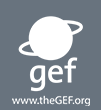
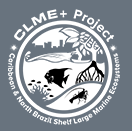

Cookies policy
We use cookies to enhance your site experience, to provide you with extra functionalities and for analytical purposes. You can consent to the use of such technology by accepting and closing this notice. If you want to find out more, please read our cookies policy here.
Welcome to SOMEE
MenuSOMEE content is still under development and is therefore not yet available online. However, you can already check for sample text and materials under the sections in blue text










